Often we are hard on ourselves when we don’t need to be, particularly when it comes to how much things that have happened to us continue to affect us. We like to think that we can just let things go, move on, and get over it but that’s just not how things actually work. Our past experiences continue to affect our current perception of events unless we actively try to overcome this natural tendency. Similarly, it is very difficult for a tall building to stand straight when the foundation is crooked. The only way to straighten the building is to work on the foundation, not the 30th floor.
Often, when discussing current struggles with my clients, they will remark that they feel a lot of anxiety or depressed feelings “for absolutely no reason”. This is rarely the case. It is more accurate to say that they are feeling anxiety for no known reason, or no current reason. There’s always a reason.
One way that is helpful for people to unlock the true impact of the past on their present is to get them to see it from outside of themselves. No, this does not involve high doses of hallucinogenic mushrooms, but a fairly simple adjustment in perspective. Have you ever noticed that it’s easier to see the solution to someone else’s problem than it is to see your own? Have you ever given someone advice that you yourself do not follow? Why is that?

In a one word answer: denial. Denial isn’t a willful decision to deceive. Rather, it is a genuine lack of awareness of the objective reality of a situation. Sometimes it seems hard to believe that a person cannot see the truth right in front of them but we have to ask ourselves “If they accept this truth, what other unpleasant truths will they have to accept as well?” For example, if I acknowledge that those bullies in elementary school created a foundation of insecurity that continues to haunt me today, driving me to achieve at ever-increasing levels, albeit without the reward of self-satisfaction, I not only have to acknowledge that those people continue to influence me, I also have to revisit the pain of the past. It is more palatable for us to deny that they continue to have an impact because it spares us having to dredge up those old unpleasant memories. However palatable this version is, it is not accurate. Nor does it adequately explain the drive to achieve that has driven all happiness out of my life.
If you genuinely think that you are not affected by your past, why not give this a try:
Write out or tell your story to someone else, but do it in the third person, as if it happened to someone else. Instead of saying, “I was bullied in school”, say, “this kid was bullied in school”. I often do this with clients and it’s usually very effective in getting past the wall of denial. I will often tell their story to them as if it happened to someone they don’t know and see what their natural reaction to it is. Once you’ve told the story, then ask the question, “How do you think this person would be affected by this experience in the long run?” By approaching the issue in this way, we subvert the brain’s tendency to protect oneself from temporary pain. It may lead to some unpleasant realizations about yourself and your life, but it will also give you the opportunity to unlock some gates that have always held you back.


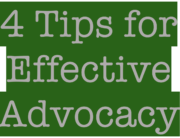













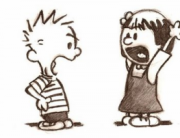





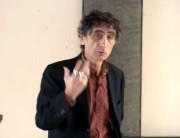







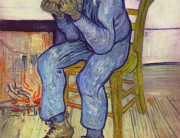










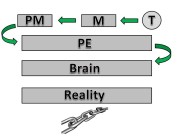





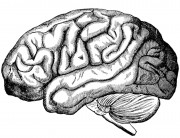



[…] Perspective: The Gatekeeper – by Ted Leavitt […]
Well, again I love what you write and how you write it!! I am definitely sharing this on my FB page as I know of at least three people who will benefit of this like I am!! Elna ~ South Africa